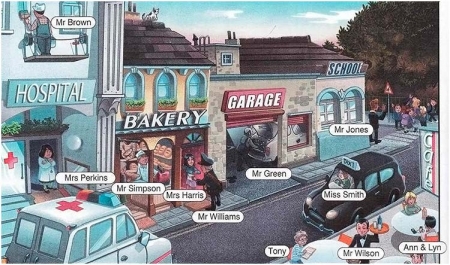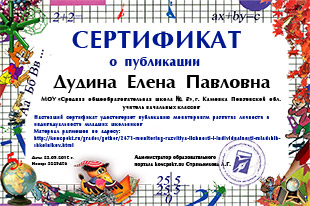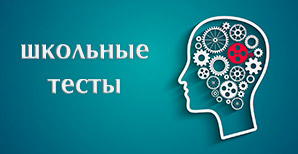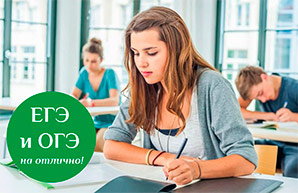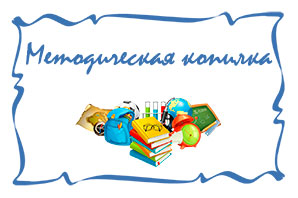Конспект урока английского языка 5 класс "Professions"
Learning objectives(s):
- use appropriate subject-specific vocabulary and syntax to talk about a limited range of general topics;
- deduce meaning from context in short texts on a limited range of familiar general and curricular topics;
- understand most specific information and detail of short, supported talk on a wide range of familiar topics.
All students will be able to: use 10 words on the topic "Professions" ( a doctor, a teacher, a mechanic, a baker, a shop assistant, a postman, a painter) in the dialogue.
Most students will be able to: recognize the names of professions and its qualities in the text and use them in the sentences with little support.
Some students will be able to: formulate 5 statements describing their future professions without any support.
Assessment criteria: By the end of the lesson students will be able to use 10 words on the topic in the dialogue, say 5 sentences about future professions using adjectives describing qualities.
Previous learning: vocabulary on the theme "Professions" ( names of professions and adjectives, describing qualities of professions, questions "What do you want to be?", "I want to be a...".
Plan
Start
Creation of positive, friendly atmosphere. The teacher greets students. Students say one positive word to their classmates in chain.( You’re nice, be happy)
Warm up activity
The lesson continues with a warm up "Alphabet Occupations".
Before singing songs the teacher gives instructions: to stand up, to sing and while watching and singing to guess the topic of the lesson. Students sing and after that say their predictions. T. uses TPR.
T. helps Ss. to formulate the topic and lesson objectives.
Middle
Group work
Checking home task, activation of the vocabulary.
GW
Students are divided into 3 groups (A, B, C) groups given cards. T. explains the instructions for the task.
- Students are to match the people’s names with professions using scaffolding pictures.
- After matching groups exchange the sheets of paper and check, count correct answers (correct answers are on the slide) and say number of correct answers. (Peer assessment)
Feedback
T. asks students to name any 3 professions from the task.
The task is meant to provide learners with helpful words for their dialogues.
GW
After revising active vocabulary Ss are aimed to do the reading task.
Pre-reading stage includes T’s questions:
- What do you want to be?
- Do you want to be a…?
- What qualities do we need to be a good policeman?
S-s answer the questions using adjectives describing qualities of the professions.
Scaffolding. (adjectives are on the slide)
While-reading
The T. gives S-s task to underline adj. describing qualities and define the profession according to the description.
Post-reading task. In groups student make up 3 sentences using the name of profession and it’s qualities. After doing this task pupils exchange their work and check up on worked out criteria and sum up.
|
1. |
Group fond 5 names of professions. |
|
|
2. |
Group underlined adjectives describing qualities of profession correctly. |
|
|
3. |
Group made up 3 sentences using the names of profession and it’s qualities. |
|
The task is meant to provide learners with helpful words for their dialogues.
After this activity T. prepares students for the next activity by using the following techniques:
Listening activity
Pre-listening task:
St-s discuss the questions are written on the board:
- What can you see in the picture?
- What the conversation will be about?
- How many people will take part in it?
T. explain the instructions: students are:
- to look through the question cards the T. gave
- to listen to the conversation once
- to choose the correct answer while listening again.
Peer assessment. (right answers are on the board)
The task is meant to provide learners with helpful ideas for their dialogues.
Differentiation
WG. T. divides students into 3 groups.
- Group A. Students fill in the gaps in the advertisement with words from the listening task (on cards)
- Group B. S-s fill in the gaps without any given words.
- Group C. Write sentences about future profession.
St-s present their works.
FA. Groups asses each other following the criteria (criteria are written on the board)
Active learning
PW. Students are to make up dialogues "What do you want to be?" of 5 phrases using questions, words were discussed in the exercises during the lesson. (criteria are given to each pair)
Then they act out their dialogues. The rest of the classes assess each pair.
End
Reflection.
Students fill in the tables: what they knew / what they want to know.
Self-Assessment
At the end of the lesson, students reflect on, put sticks of different colours in the basket:
- green - my work was fruitful, great;
- yellow - I worked at the lesson, but sometimes I could do more;
- orange - next time I’ll work better.
